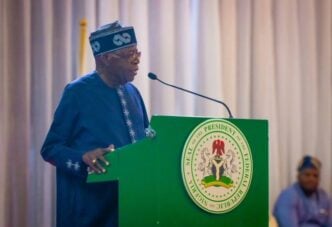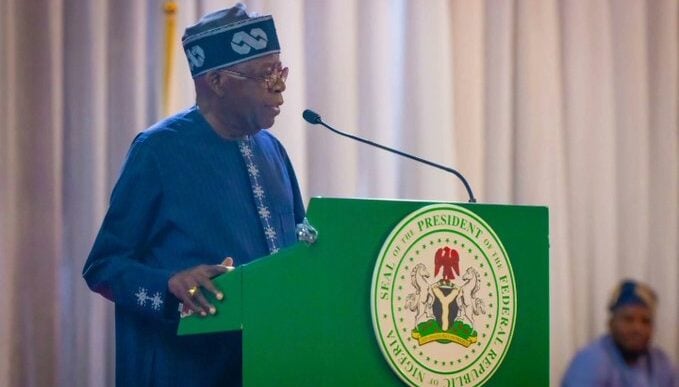BY ABDULLAHI HASHIM
Nigeria’s tax reform bill is one of the most significant legislative initiatives in recent history. It is not just a national effort but part of a global movement to modernise tax systems. Countries like Singapore implemented similar reforms in 2023, and the Organisation for Economic Co-operation and Development (OECD), with 38 member countries, has also adopted tax policies that align with President Bola Ahmed Tinubu’s vision. The reform is not just about taxation; it is a strategic step toward economic sustainability and national development.
“Tax reform is not just about raising revenue; it’s about creating a more efficient, equitable, and sustainable tax system.” – Jason Furman, Professor of the Practice of Economic Policy, Harvard Kennedy School”
Modernising an archaic system
Advertisement
For years, Nigeria has operated with an outdated tax system that has failed to keep up with economic shifts, technological advancements, and post-pandemic realities. The new tax reform aims to upgrade the system, making it more efficient, transparent, and aligned with contemporary economic conditions.
Key global and local factors—such as an ageing population, rapid technological expansion, and economic restructuring—necessitate this reform. The goal is to create a tax policy that enhances revenue generation while ensuring fairness and efficiency. However, the success of this reform depends on consensus-building among stakeholders, including state governments, businesses, and the general public. Encouragingly, the Nigerian Governors’ Forum has shown support for the reform, signalling a positive shift in fiscal governance.
Inclusivity and the president’s leadership
Advertisement
President Tinubu’s leadership style emphasises inclusivity. For any policy to be effective, it must reflect the realities of the people it impacts. The tax reform bill represents a paradigm shift in governance—one that involves state governments, businesses, and the electorate in decision-making.
State governors play a vital role in this process, ensuring that tax policies are practical and beneficial at both federal and state levels. Their input is essential in shaping tax reforms that align with the economic realities of their regions while contributing to national development.
Addressing economic leakages and promoting tax concessions
One of the major challenges Nigeria faces is economic leakage, particularly in the petroleum sector. Statistics show that an estimated 15.6 million litres of petroleum are smuggled out of the country daily. Combined with reduced domestic consumption due to economic hardship, this results in a shortfall of about 20.1 million litres per day. Such inefficiencies highlight the need for a tax system that not only generates revenue but also addresses structural weaknesses in the economy.
Advertisement
Tax concessions should also be used strategically to support business growth and infrastructure development. Instead of direct tax payments, businesses could be incentivised to invest in public infrastructure such as roads and bridges. This model ensures that tax revenues are channelled into projects that directly benefit the economy while fostering a business-friendly environment.
Low public awareness and the need for enlightenment
Despite the potential benefits of the tax reform, a major challenge remains—low public awareness. The bill itself is over 400 pages long, making it inaccessible to the average Nigerian, who is more focused on pressing economic concerns like rising fuel prices and inflation. Many citizens neither understand the reform nor its implications. Even some lawmakers admit to not having read the bill, raising concerns about the quality of debate surrounding it.
This lack of awareness underscores the need for stronger public enlightenment efforts. Agencies like the National Orientation Agency (NOA) and the Ministry of Information should take on the responsibility of educating the public about the benefits and impact of the tax reform. Without proper awareness, misconceptions and misinformation can undermine the objectives of the reform. I, therefore, seize this opportunity to canvass for more enlightenment to achieve desired objectives
Advertisement
Regional disparities and economic realities
The tax reform bill has also sparked discussions about revenue sharing and regional economic disparities. Northern Nigeria, for example, has a largely informal economy, making tax collection a challenge. If tax policies do not account for this, northern states may feel marginalised. However, it is important to note that the reform is not designed to punish any region but to create a fairer tax structure where all Nigerians contribute to national development.
Advertisement
I wish to say with a high sense of responsibility that President Tinubu’s intent is clear—he aims to empower Nigerians and reduce dependency on political patronage. By encouraging financial independence and self-sufficiency, he seeks to break the cycle of economic control that has kept many citizens financially dependent on government handouts.
Advantages of President Tinubu’s tax reform
Advertisement
For the record, the tax reform brings numerous benefits to the Nigerian economy as follows:
1. Increased government revenue: By improving tax compliance, broadening the tax base, and reducing leakages, the reform enhances government revenue. This will enable increased funding for infrastructure, healthcare, and education.
Advertisement
2. Simplification and modernisation: The reform simplifies Nigeria’s tax system, reducing bureaucratic inefficiencies and making tax filing easier for businesses and individuals. Digitalisation will further streamline tax administration.
3. Reduction of economic leakages: The reform addresses revenue losses, particularly in the petroleum sector, by tightening tax policies and improving monitoring mechanisms. This ensures that Nigeria retains more of its internally generated revenue.
4. Attraction of foreign and local investment: A transparent and fair tax system boosts investor confidence. Tax incentives and concessions for key industries create a more attractive business environment, leading to job creation and economic growth.
5. Fiscal decentralisation and state autonomy: I wish to state with emphasis that tax reform empowers state governments to generate and manage their own revenue, reducing reliance on federal allocations. This allows states to develop localised economic policies.
6. Support for small and medium enterprises (SMEs): The reform includes provisions for tax waivers and incentives that support small businesses, which are vital to Nigeria’s economy. This will promote entrepreneurship and job creation.
7. Greater economic inclusion: By integrating informal sector businesses into the tax system, the reform ensures a fairer distribution of the tax burden, making taxation more equitable.
8. Improved public services and infrastructure: It is instructive to note that with better tax administration, the government can invest more in roads, power, healthcare, and education, leading to improved living standards.
9. Global competitiveness: One vital advantage of the proposed tax reform is the aligning of Nigeria’s tax system with international best practices as the development will enhance its competitiveness in global trade and investment.
10. Transparency and accountability: I wish to state at this juncture that the tax reform will introduce better tracking and monitoring, reduce corruption and ensure efficient use of tax revenue. This will definitely foster public trust in government policies.
The way forward
I wish to conclude with this salient point. I urge stakeholders to note that while the tax reform bill is a step in the right direction, its success hinges on effective implementation. The government and its agencies must prioritise public awareness, stakeholder engagement, and regional considerations.
It is important to state here that a tax system that is fair, transparent, and well-communicated will foster national growth and economic stability.
The conversation around tax reform is far from over. What matters now is how effectively the government implements these policies to benefit all Nigerians and ensure that no one is left behind.
Engr Hashim, an alumnus of Harvard University, prominent member of Nigerian Society of Engineers (NSE) and a member of the Council for the Regulation of Engineering in Nigeria (COREN), contributes this piece from Abuja.
Views expressed by contributors are strictly personal and not of TheCable.
Add a comment










